Last year, our Nirmal Village Program provided toilets and hygiene education for 770 families living in rural India. Our goal in 2017 is to help 1,000 more.
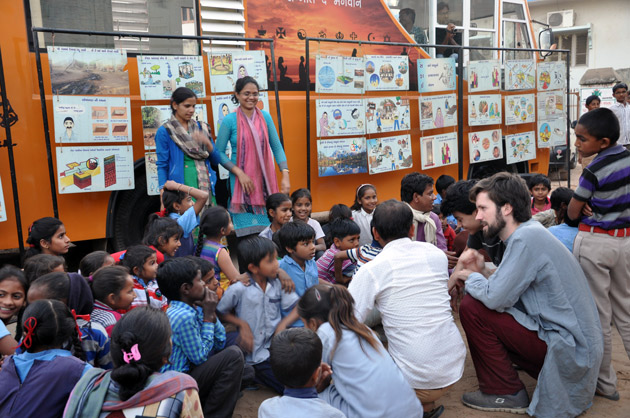
As we’ve previously written about, tackling India’s sanitation crisis is a complex issue, requiring not only the construction of toilets but also plenty of hands-on, village-wide education about proper sanitation and hygiene.
It is possible to create change, however, and we are making a difference — one community at a time. Below are four inspiring stories from beneficiaries living in Gujarat, India.
Before
Valmiki Rama Laxman Family
There are eight members of the Laxman family, all of whom survive on meager wages from seasonal farm labor. Due to poor financial conditions, they did not have their own toilet and were forced to practice open defecation.
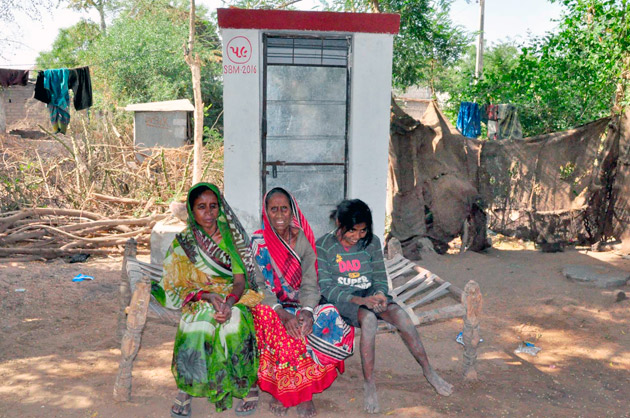
This was problematic and dangerous for all members of the family, but particularly for the daughters Sitaben, who is blind, and Laxmiben, who is handicapped. Both of these young women have suffered immense harassment and discomfort when defecating in the open, especially when in poor health and during rainy seasons.
Gota Pasa Solanki
Last year, Gotabhai’s wife began experiencing severe gastrointestinal issues. Like many of India’s rural poor, she suffered from diarrhea and physical weakness, and eventually had no choice but to defecate at home — where there was no toilet.
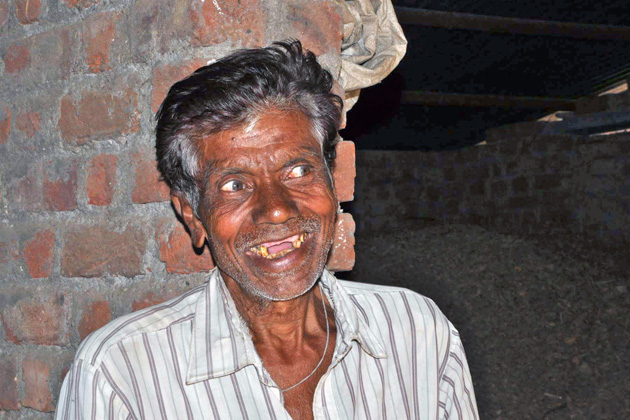
In addition to posing additional health risks, this also made her feel ashamed. Gota, who himself is handicapped, found himself unable to help her or even assist her outside.
Vahari Ishwar Karsan Family
For generations, members of the Karsan family practiced open defecation due to a lack of sanitary facilities as well as a lack of hygiene education. However, just a couple years ago, the family’s youngest daughter was harassed while on her way to relieve herself. This caused her significant mental trauma and fear, and and she has since been forced to defecate in the courtyard of her family’s home.
Pasi Chatur Senva
Pasiben is a 60-year-old widow who suffers from physical weakness and severe joint pain. She lives in a tiny home by herself and relies almost entirely on the charity of kind-hearted villagers for her food, clothing, and medicines.
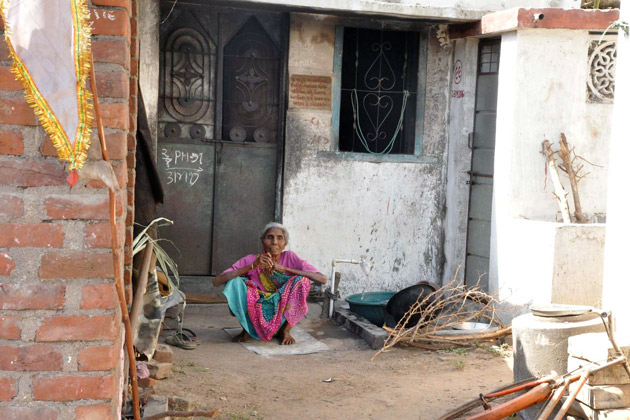
Because her home did not have a toilet — and because she is often unable to move about freely — she’s had no choice but to live in an unsanitary environment, and has suffered additional health issues because of it.
After
Thanks to Share & Care’s Nirmal Village Program and our partner NGO, all four of these families — and hundreds more — have received toilets and hygiene education, and are no longer forced to defecate in their homes or in the open.
The Karsan family, whose young daughter was harassed, have begun encouraging other people in their village to construct toilets, and say they believe their new sanitation facilities will even assist in their children’s education.
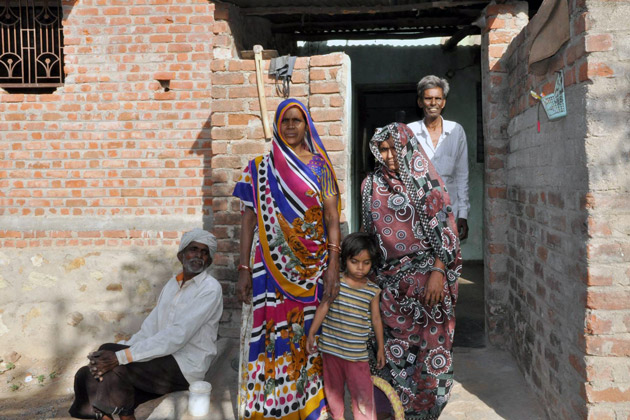
Gotabhai, whose wife suffered health issues, says he now feels proud and safe, and insists, “There can’t be a better gift than a toilet!”
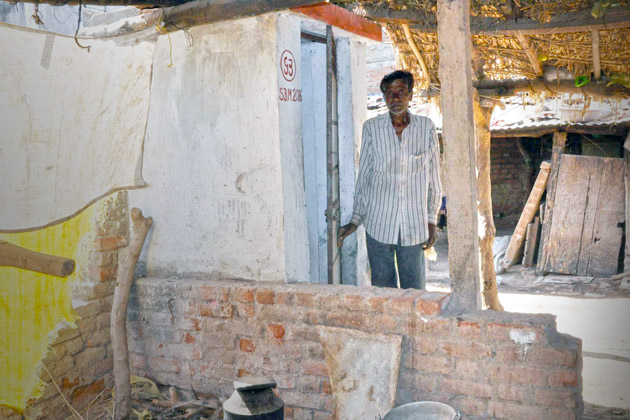
With your help, it is possible for us to reach our goal of bringing even more toilets and hygiene education to rural India’s most underprivileged individuals. Click below to contribute now.

